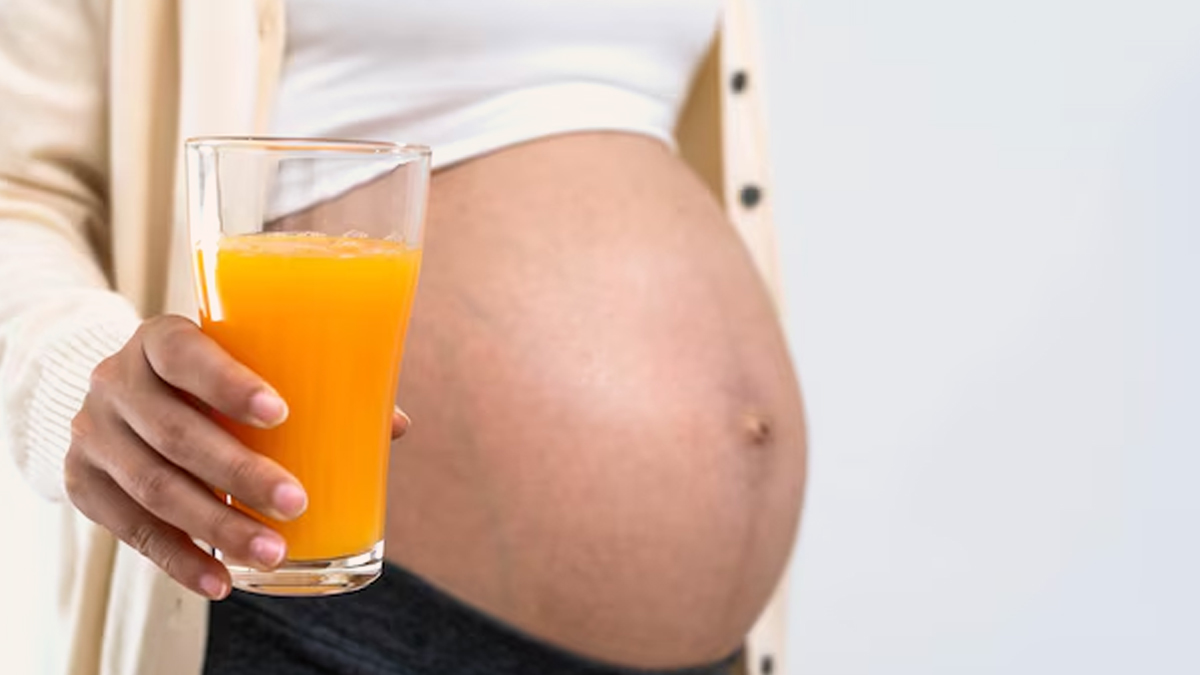
Pregnancy is a time that calls for mindful eating and self-control, especially when it comes to food choices. While cravings are common, an intense longing for unhealthy foods can sometimes lead to complications such as excessive weight gain or gestational diabetes.
Table of Content:-
What’s equally important, however, is to be aware of the myths and misconceptions that surround pregnancy nutrition. Some foods are unfairly labelled as harmful, often without scientific basis, leading to confusion. One such food that frequently comes under scrutiny is pineapple. Many people warn against its consumption during pregnancy, claiming it may cause harm to the mother or baby.
So, is there any truth to this? Can pregnant women safely eat pineapple, or should it be avoided? We spoke to an expert to find out.
Also Read: How Does Malaria Affect Pregnant Women? Symptoms, Risks, and Treatment Explained
Are Pineapples Safe To Eat During Pregnancy?

Pineapple is often avoided during pregnancy due to long-standing myths and beliefs. The concern mainly revolves around an enzyme called bromelain, which is found in the fruit. Bromelain is thought to break down proteins in the body and, in large amounts, may cause issues like abnormal bleeding. Some also believe it could soften the cervix and trigger early labour. These claims have made many pregnant women cautious about including pineapple in their diet. For moms-to-be, especially those already feeling anxious, this can sound scary.
However, in an interaction with the OnlyMyHealth team, Dr Archana Dhawan Bajaj, Gynaecologist, Obstetrician and IVF Expert, Nurture IVF Clinic, New Delhi, clarifies that pineapples are safe to eat during pregnancy. She adds that the claim that this fruit can cause an early miscarriage or induce labour is only a myth. There is no scientific evidence to suggest that pineapple is harmful during pregnancy. On the contrary, there may be benefits if it is consumed in moderation. Some benefits include:
Pineapple contains antioxidants such as vitamin C, which can help reduce inflammation during pregnancy.
Pineapple is also an excellent source of folate. It is recommended that pregnant women consume at least 600 mcg of folate each day to support their baby's wellbeing. One cup of fresh pineapple has roughly 30 micrograms of folate, making it an excellent source of this vital nutrient.
In general, a pregnancy diet can consist of foods from the following five groups, according to the United States Food and Drug Administration (FDA):
- Vegetables from all the subgroups—dark green, red and orange, legumes (beans and peas), starchy, and other
- Fruits, especially whole fruits
- Fat-free or low-fat dairy, including milk, yoghurt, cheese, and/or fortified soy beverages
- A variety of protein foods, including seafood, lean meats and poultry, eggs, legumes (beans and peas), and nuts, seeds, and soy products
- Oils
- Grains, at least half of which are whole
Side Effects Of Having Too Many Pineapples

Eating too much pineapple while pregnant will not result in early labour; however, it can be uncomfortable, especially if you have a sensitive gut.
Dr Bajaj explains that the acids in pineapple may cause heartburn or reflux. Moreover, some people may also experience an allergic reaction. “If you don't regularly consume pineapple and get any allergy symptoms after munching, contact your doctor,” the doctor warns.
Allergic symptoms include irritation or swelling in the mouth, skin reactions and asthma symptoms, including congestion and a runny nose. These symptoms will appear within minutes if you are allergic to the fruit. Being allergic to pollen or latex increases your likelihood of being allergic to this fruit too.
Also Read: Heatstroke and Pregnancy: Expert Shares Essential Tips For Pregnant Women To Stay Safe This Summer
How Much Pineapple Is Considered Safe To Eat During Pregnancy?

1-2 cups of fresh pineapple can be consumed in a day.
In general, consuming pineapple in moderation is considered safe and beneficial throughout pregnancy. However, some individuals may want to limit their pineapple intake due to concerns about potential side effects like acid reflux or high sugar content, especially if they have gestational diabetes.
Also watch this video
Read Next
Nourishing Your Baby’s Brain: Expert Explains The Role Of A Mother’s Diet In Early Development
How we keep this article up to date:
We work with experts and keep a close eye on the latest in health and wellness. Whenever there is a new research or helpful information, we update our articles with accurate and useful advice.
Current Version